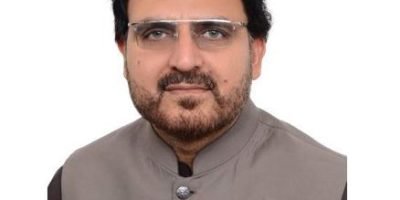A Gamble for Peace

Dr. Muhammad Akram Zaheer
The prospect of Donald Trump’s return to the White House has generated significant discourse in Tehran, where the primary concern is not what policy trajectory the incoming administration might adopt toward Iran but whether the Islamic Republic should engage in negotiations with the former president. Prominent Iranian officials, including experienced diplomats, argue that Tehran must exercise its agency and signal a willingness to negotiate. This perspective posits that Trump’s strong mandate, as evidenced by the electoral outcome, provides him with the political latitude to broker a mutually beneficial agreement with Iran. However, whether such calls will influence Tehran’s posture in the wake of Trump’s inauguration remains uncertain.
In 2018, during Trump’s first term, his administration’s withdrawal from the 2015 Joint Comprehensive Plan of Action (JCPOA) and the subsequent imposition of a “maximum pressure” sanctions campaign devastated Iran’s economy. Supreme Leader Ayatollah Ali Khamenei categorically dismissed the possibility of negotiations with Trump, labeling the American president as unworthy of engagement. Khamenei’s assessment relied on the belief that Trump’s presidency represented an anomaly in U.S. politics. This gamble, however, backfired as U.S.-led sanctions decimated Iran’s oil revenue and international trade, while escalating tensions culminated in the assassination of General Qassem Soleimani in January 2020.Today, the geopolitical landscape has shifted markedly. Trump’s political position appears stronger, and Iran faces increasingly severe domestic and international challenges. The prevailing sentiment in Iranian media underscores an urgent need for recalibration. As one commentator observed, “The era of no war, no peace is over. It’s now the era of either war or peace.” With the Republican Party controlling all three branches of the U.S. government, proponents of negotiation assert that a potential agreement with Trump would carry more durability than the JCPOA, which faced resistance from congressional Republicans.
Iranian commentators also highlight Trump’s unpredictability. While his rhetoric often aligns with anti-war sentiments, his unconventional governance style leaves the possibility of military confrontation open. A Republican-controlled Congress affords Trump significant latitude in foreign policy, potentially allowing him to initiate military action without the constraints faced by previous administrations. This dynamic poses a significant risk to Iranian strategic assets, including its nuclear facilities, should Tehran resist engagement.At the same time, the possibility of a negotiated settlement remains on the table. Figures close to Khamenei suggest a cautious approach, advocating for a wait-and-see strategy to evaluate Trump’s intentions. For instance, Ali Larijani, a moderate advisor to Khamenei, has suggested that Trump may adopt a more constructive approach in his second term. Similarly, Foreign Minister Abbas Araghchi has encouraged Trump to abandon his “maximum pressure” campaign in favor of “maximum wisdom,” signaling that Tehran could reciprocate constructively to avoid conflict.
The Iranian government harbors deep-seated grievances from Trump’s first term, which saw measures such as the “Muslim ban,” the designation of the Islamic Revolutionary Guard Corps (IRGC) as a terrorist organization, and the targeted killing of Soleimani. Despite these hostilities, Trump consistently expressed willingness to negotiate with Iran albeit on terms perceived as highly unfavorable by Tehran. Iranian officials as tantamount to a call for capitulation dismissed his administration’s infamous 12-point demand list.Nonetheless, there are signs that Trump’s second administration might adopt a different approach. His decision to exclude former Secretary of State Mike Pompeo, a staunch Iran hawk, from his new team has been interpreted in Tehran as a potential olive branch. However, the composition of Trump’s national security team remains fluid, leaving uncertainty about the influence of hawkish versus isolationist elements within his administration.
A straightforward compromise between Trump and Khamenei could center on Iran’s nuclear program. Trump’s primary demand is the prevention of Iranian nuclear weaponization, a position ostensibly aligned with Khamenei’s 2012 fatwa declaring nuclear weapons un-Islamic. However, tensions extend beyond nuclear issues, encompassing Iran’s regional activities and its role in supporting allied groups across the Middle East. Addressing these broader concerns will likely require concessions from both sides.In this context, regional developments could play a pivotal role. Tehran is reportedly optimistic that Trump might pressure Israel into accepting a ceasefire in conflicts involving Gaza and Lebanon, potentially creating space for dialogue on select regional issues. Larijani’s recent visits to Damascus and Beirut, where he conveyed reassurances to Iran’s allies while advocating for a ceasefire, suggest that Tehran is exploring options to de-escalate regional tensions.
Despite these overtures, Tehran faces a profound strategic dilemma. Should it prioritize preserving the Axis of Resistance a network of regional proxies—or pursue a reorientation of its regional agenda to align more closely with international expectations? While immediate priorities appear to favor the former, growing domestic and international pressures may necessitate a broader rethinking of Iran’s strategic framework.Khamenei’s reluctance to engage with Trump during his first term reflected confidence in Iran’s ability to withstand external pressures. However, the cumulative impact of sanctions, regional setbacks, and domestic unrest has significantly eroded Tehran’s position. Consequently, there is increasing recognition within Iranian policymaking circles that negotiations with Trump, while fraught with uncertainty, may offer a pragmatic pathway to alleviating external pressures.The return of the maximum pressure campaign, albeit under a different guise, remains a central concern for Tehran. While the Biden administration maintained existing sanctions, it did not enforce them with the same vigor as Trump’s first administration. Tehran anticipates that Trump’s renewed emphasis on sanctions could lead to the reactivation of snapback provisions under the JCPOA, particularly if European powers frustrated by Iran’s support for Russia in the Ukraine conflict align with Washington.
At the same time, Tehran sees potential opportunities in the shifting geopolitical landscape. China, a critical buyer of Iranian oil, is unlikely to abandon its partnership with Tehran given its own tensions with Washington. Similarly, Arab states appear inclined to avoid entanglement in U.S.-Iran conflicts, prioritizing regional stability over alignment with American strategies.
Related News

Make America Go Away
Qamar Bashir The red caps were impossible to miss. In Copenhagen’s winter chill, protesters gatheredRead More



Comments are Closed